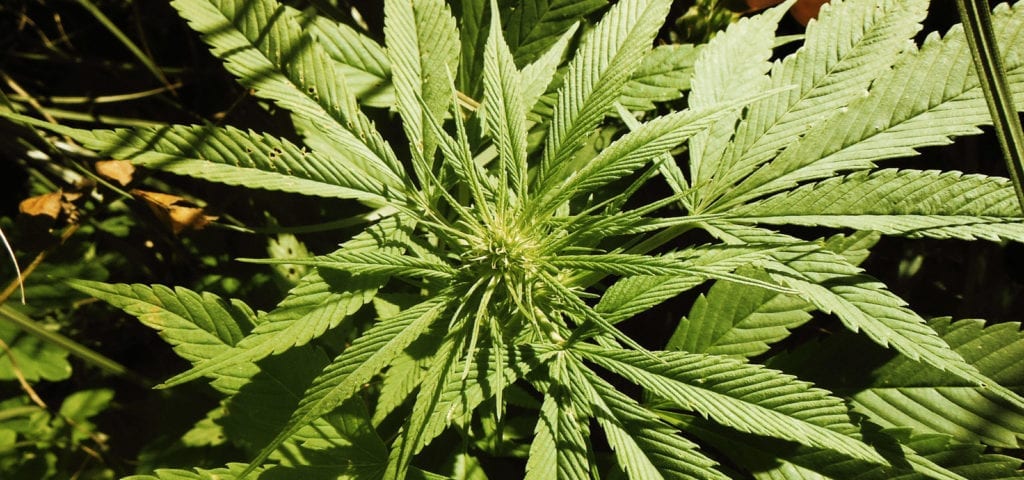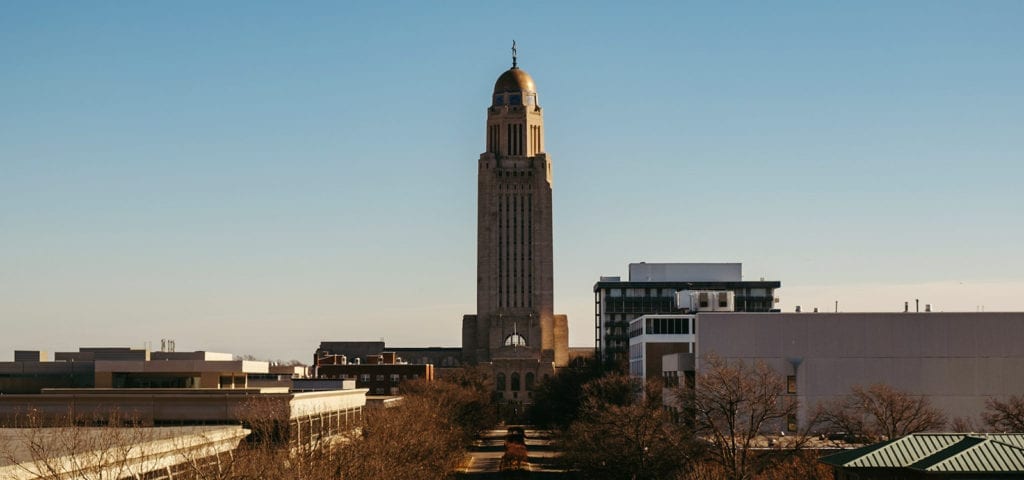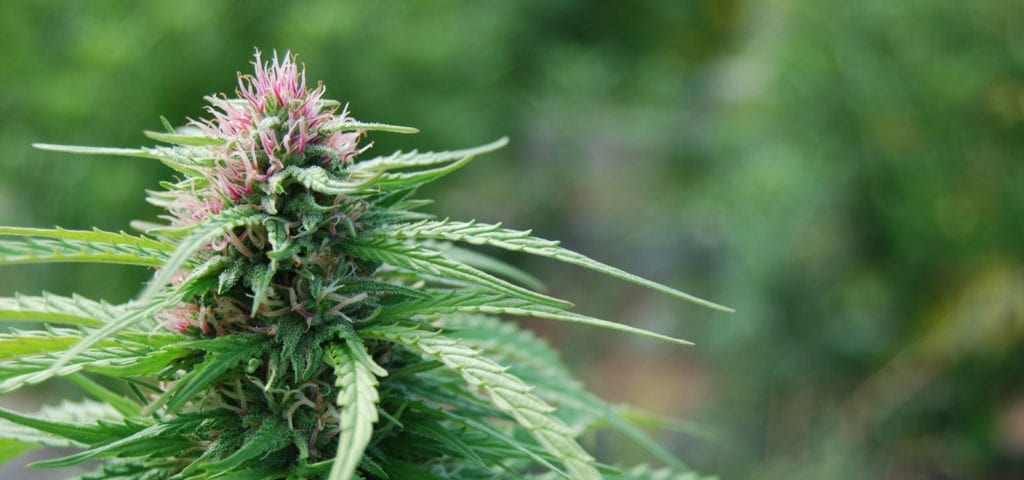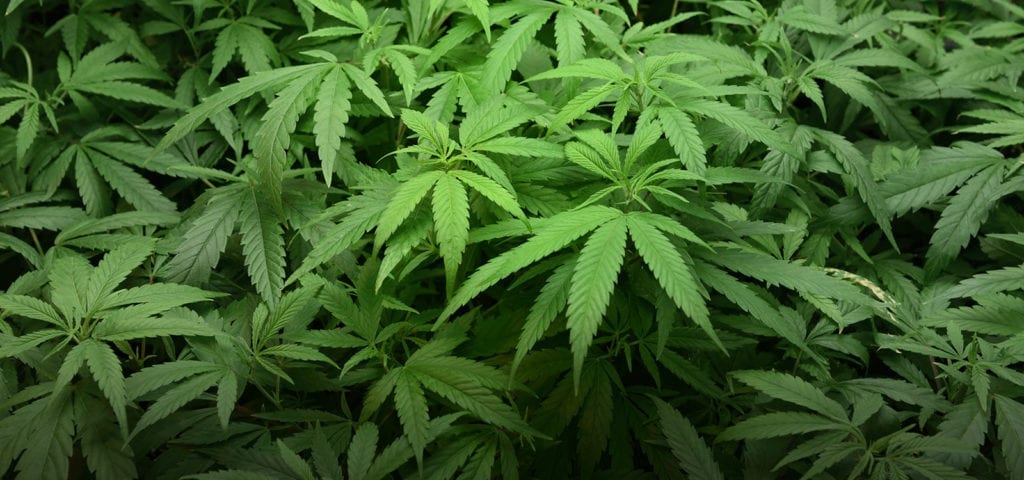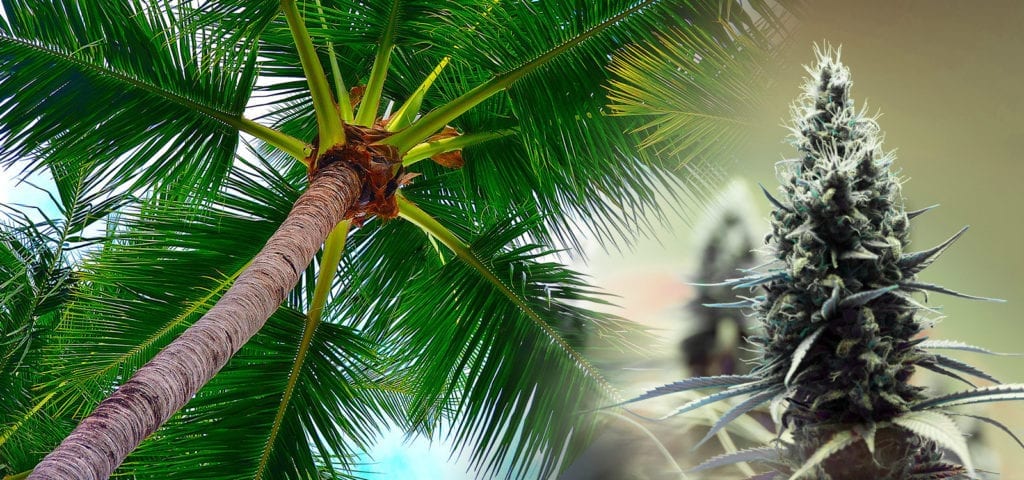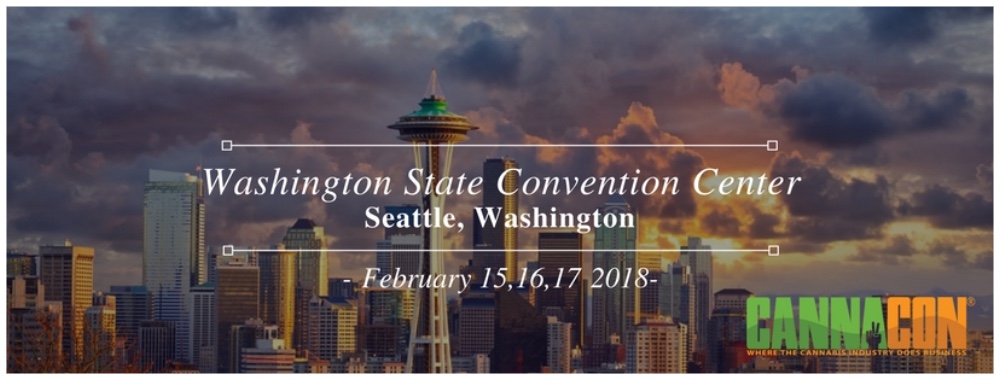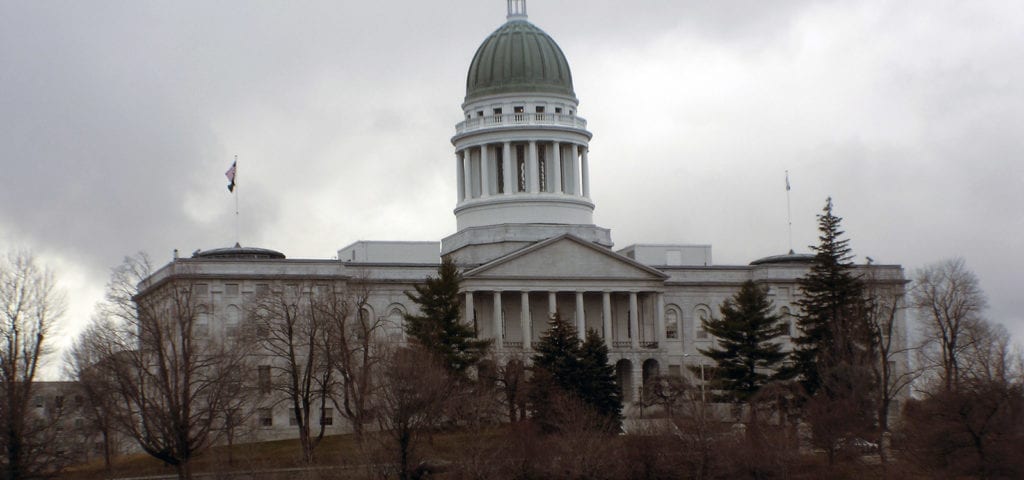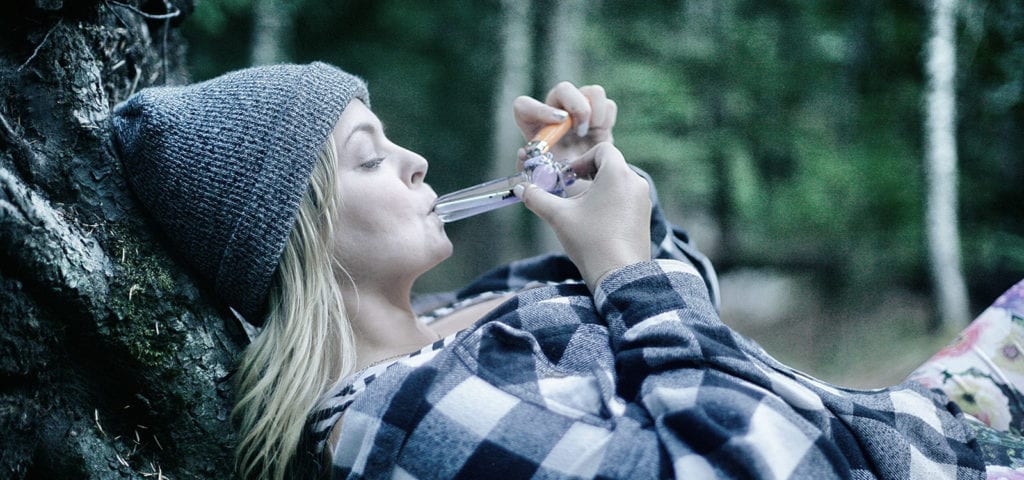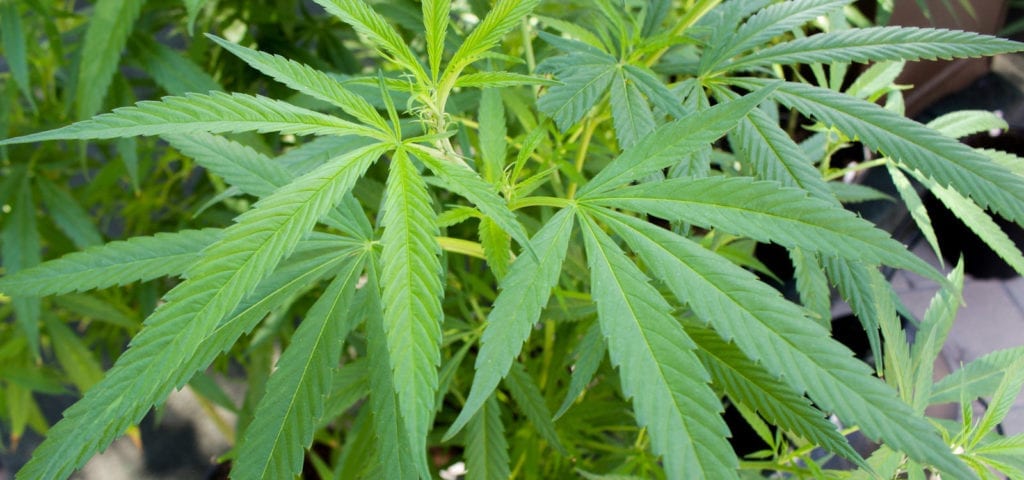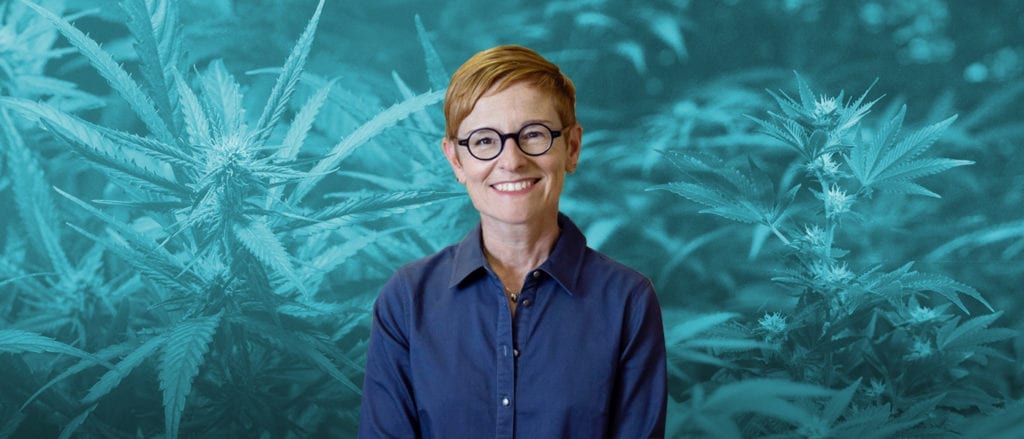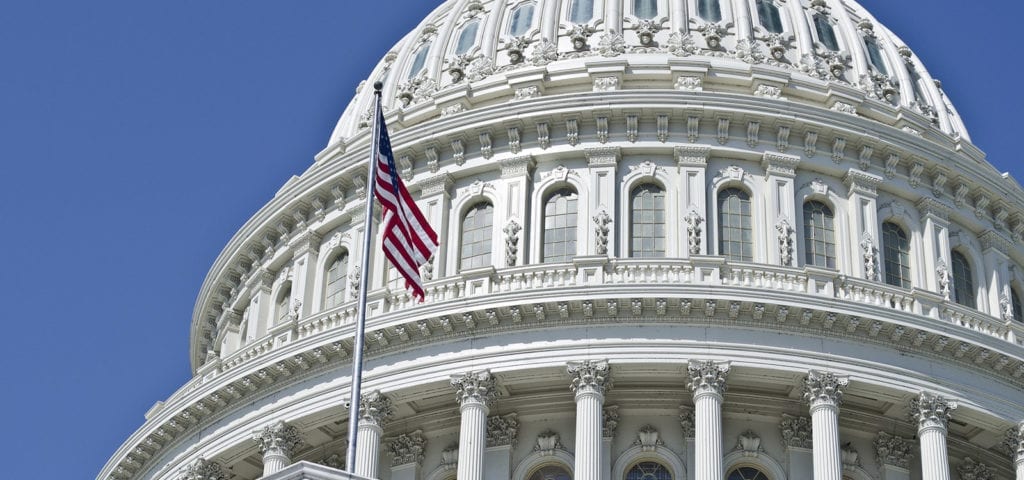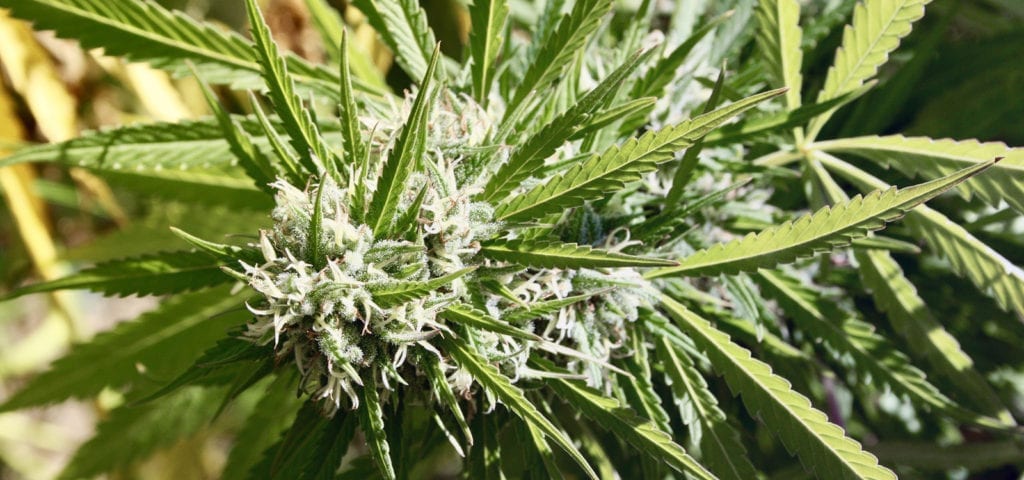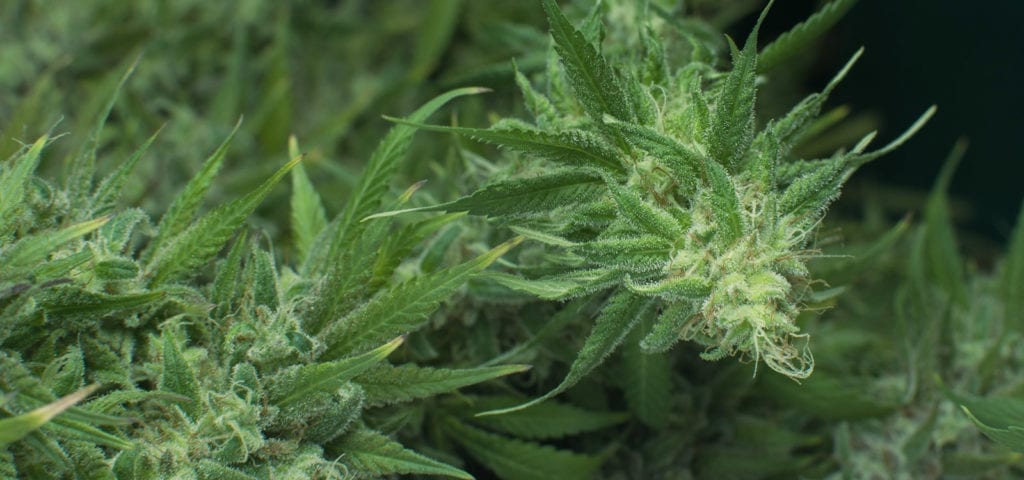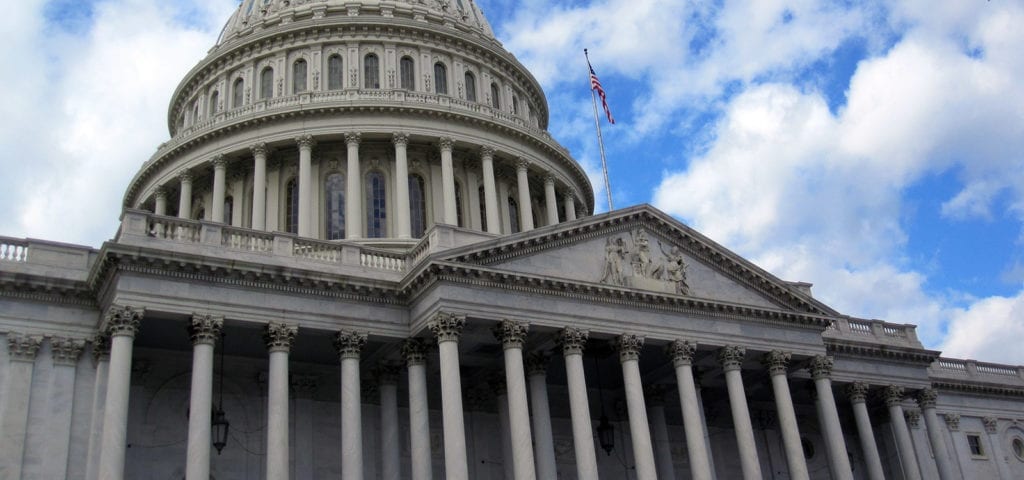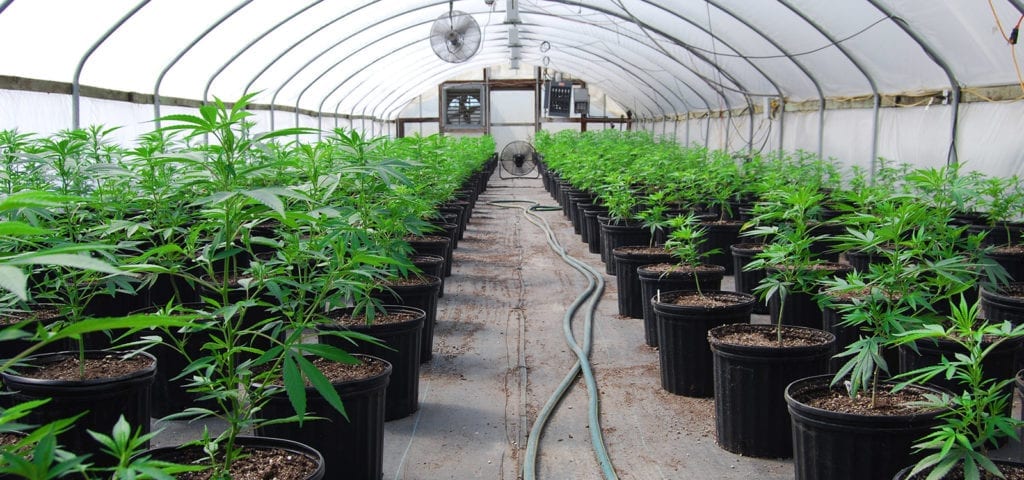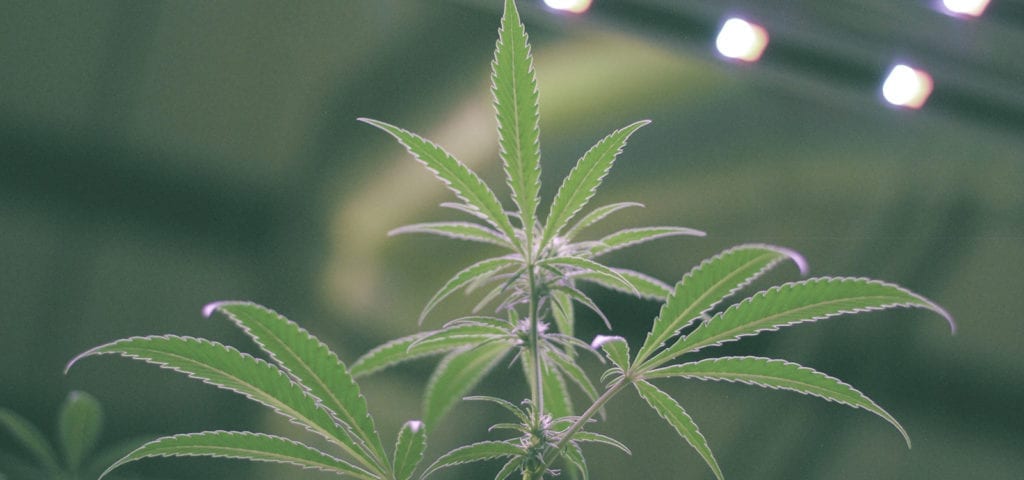Patricia Rosi is CEO of the Wellness Connection, a medical cannabis company operating four dispensary locations throughout Maine and which serves more than 11,000 patients.
Patricia joined our podcast host TG Branfalt last month to talk about her experience at the head of one of Maine’s most progressive new companies, what the future of adult-use cannabis looks like in Maine, and why the Americans for Safe Access advocacy group has lauded Maine’s medical cannabis program as perhaps the best regime for patients. The two also discuss the work that members of the Wellness Connection team have put into making a positive impact in their local communities via donations, volunteer work, and/or partnerships with local nonprofits — all in the name of debunking cannabis myths and shedding the stigma that has stalked the plant for decades.
You can listen to the interview via the player below, or scroll further down to read a full transcript of this week’s Ganjapreneur.com podcast episode.
Listen to the interview:
Read the transcript:
TG Branfalt: Hey, there. I’m your host, TG Branfalt, and you are listening to the Ganjapreneur.com Podcast, where we try to bring you actionable information and normalize cannabis through the stories of ganjapreneurs, activists and industry stakeholders. Today I’m joined by Patricia Rosi, CEO of the Wellness Connection of Maine, which operates four locations and has more than 11,000 patients in the state. How are you doing this afternoon?
Patricia Rosi: I am doing great, here in Maine today. Thanks for having me.
TG Branfalt: I’m delighted. We’re practically neighbors. I’m in Burlington, Vermont, so I talk to a lot of Maine-ers on a pretty regular basis, they come down here for the hemp festival. And so it’s really great to have one of my neighbors on the show. So before we get into what you guys do over there at the Wellness Connection of Maine, I want to know about you. How’d you end up in the cannabis space?
Patricia Rosi: That was sheer luck. By trade and training, I’m a marketing executive. I’m originally from France and I live in Maine now for 18 years. I relocated from Paris, France to Portland, Maine, so that was a big jump. I’ve been doing all my past career in advertising agencies and also building advertising agencies. And back in 2011, when really cannabis was not as sexy a topic that it is currently, a company by the name of Wellness Connection of Maine was desperately recruiting for their Board of Directors. One thing leading to another, I joined the Board and really fell in love with the mission and the idea of becoming an actor for change in society and to provide improved quality of life for people that needed it. The one thing lead to another, started doing the marketing, then became the COO and now I am the CEO. So all things considered, I’ve been with Wellness for the last six years.
TG Branfalt: So how did you leverage your previous experience in marketing, communications and branding into this new role, this new industry?
Patricia Rosi: Well, I think it’s playing the basics and the fundamentals of marketing, you know, know your consumer, understand what they’re seeking, their barrier to entry, their insights. Our industry, even though now it’s a topic that is much more mainstream and easy to discuss, there’s still the same stereotype about who we are, what we offer, the service we provide. So there’s a lot of stereotypes to debunk and providing a lot of comfort and answers for people. So really understanding the psyche of the consumers, making them feel comfortable and bringing to life, not just the store, but really more of a wellness community experience to life and making it this non-judgmental zone where people can feel comfortable asking us question and accessing marijuana.
TG Branfalt: So can you give us an overview of Maine’s medical cannabis program and explain what sets it apart from other states that led to its top ranking by the advocacy organization Americans for Safe Access?
Patricia Rosi: Sure. I think what sets Maine apart is we were one of the pioneering states. Now every year there’s multiple states coming online, whether with medical programs or even recreational, but Maine started in the late 1990’s, in 1998, having the first referendum when it comes to medical marijuana for patients. And this, as we know it now, that brought to life the dispensaries, was this past referendum was passed in 2009. So I think what sets us apart is really this pioneering spirit and this desire to provide access to an alternate form of care via marijuana.
One of the different shading factors from Maine is the fact that it’s a system that is set with two type of providers, dispensaries on one side. There’s eight state licensed dispensaries and next to it, there’s over 3,000 caregivers which, by design, are meant to care for a smaller group of individuals. So not all states offer this caregiver model and I think that’s something that sets us apart, and also provides the needed access because Maine is such a vast state, that guarantees that everybody can access geographically medical cannabis. I think also the reason why it was ranked so high by Americans for Safe Access was the tight regulation and system from the onset and the care about making sure this was done right was really important right from the get-go.
TG Branfalt: And so as a dispensary, you said there’s this two sort of separate, there’s the dispensaries and then there’s the caregivers. What is your role in that system? And by that, I mean how closely do you work with caregivers in the state?
Patricia Rosi: I think in the nascent industry, we really need to work at building professional networks and collaboration. The Maine system by its design makes it a little challenging for us to collaborate with caregivers, in the sense that we cannot openly buy from each other — there’s no wholesale system, if you will. So it’s difficult for us to collaborate, but there’s a lot of, in the recent years, there’s much more collaboration with caregivers than there used to be in the past. I think it’s one very positive development of adult use coming into line is all us stakeholders in the industry, in the future of what the recreational market would look like, has opened and enabled a lot more collaboration between all the stakeholders.
TG Branfalt: So with the, as you said, the slow increased collaboration and sort of the outstanding nature of Maine’s program, is there any improvements that advocates and people in the industry are looking for in Maine?
Patricia Rosi: Well, I think the biggest improvement that we’re looking it, as a market in general, is creating a level playing field for all of us to participate and be successful at it, while providing wider access to cannabis, and I think the best vehicle for this is the implementation of adult use. The referendum that was passed in 2009, we can keep every year trying to place legislation that would fix one thing and another, but it takes a long time to fix a bill that was passed, so really adult use could be this avenue by which … and I think that was one of the key learnings from Colorado, it’s really important to not view the cannabis market as silos and bring down the silos and integrate right from the get-go adult use in medical and make sure there’s a lot of harmonization between all policies and the opportunities on each side. So I think that’s the biggest thing we’re looking forward is to have this integrated or harmonized market start to develop in Maine.
TG Branfalt: So we’re definitely gonna get into the adult use stuff a little bit later. But before we do that, I gotta ask you, I read that PTSD ranks first among the conditions that your patients are granted access to the state medical cannabis program. And I’ve spoken to veterans, I’ve spoken to a lot of people who, we discussed the PTSD thing, but I’ve never directly spoken to any patients or anything like that. Can you sort of give me and the audience an idea of how medical cannabis helps patients with PTSD?
Patricia Rosi: Sure. So first PTSD, when it became an accepted condition in 2013, I was expecting just veterans, who are often, you associate PTSD with veterans. What we discovered is that there’s also, interestingly enough, another audience under the PTSD umbrella, which unfortunately is women, victim from domestic violence. So that was something we didn’t really expect, but nevertheless, whatever the origin of the trauma is, it’s still something that we provide a lot of relief, when it comes to appeasing the anxiety, the insomnia. One gentlemen who’s with us since we opened, his PTSD was so profound that he could not sleep more than two hours at a time. So working with him and identifying a daily regimen via medical cannabis, it is definitely helping to have real nights, or at least to extend that to four to six hours, which for him is unbelievable progress, and also reducing his overall anxiety.
The way we work with each patient, whether it’s PTSD or any other condition, is really the relationship we create with them, asking questions, trying things, improving as we learn and refining this very personal regimen that we’ll tailor their specific condition. So how we do that is a lot of one-on-one conversation, but we’ve also done a lot of work in the communities with associations, whether it’s a veteran association or association dealing with domestic violence, we have a better understanding with people that are really focused on those conditions of how we can serve folks. And I would say, in everything we do in cannabis, there’s not a set way of addressing a condition. It’s ultimately very individual and personal, so we always evolve our practice as we serve more people.
TG Branfalt: So I definitely want to talk to you about some of your charitable acts and again we definitely want to talk about the adult use regime, but before we do that, we gotta take a break. This is Ganjapreneur.com Podcast, I’m TG Brandfalt.
If you are looking for a job in the rapidly growing and highly competitive cannabis industry, Ganjapreneur.com is the place to look. Visit the Ganjapreneur Job Board today to browse current openings with cannabis companies throughout the United States, from entry-level budtender positions to executive-level career opportunities. You can also create a profile and upload your resume to be discovered by cannabis recruiters. Visit our job board at jobs.ganjapreneur.com to create your profile today.
If you are a business owner, you can post your job openings for as little as $25 on our job board to reach the largest and most engaged audience of cannabis professionals on the web. Companies who are listed in the Ganjapreneur Business Directory are eligible for free job listings. If you are already signed up, contact us today via the website or send us an email at grow@ganjapreneur.com to activate your unique coupon.
TG Branfalt: Hey, welcome back to the Ganjapreneur.com Podcast. I’m your host TG Brandfalt, here with Patricia Rosi, CEO of the Wellness Connection of Maine. So you had mentioned briefly, before the break, you were talking about you sort of charitable reach, you guys provide support for a variety of organizations, including the Dempsey Center for Cancer, Hope and Healing, the United Way, the Maine Coalition to End Domestic Violence, the Good Shepherd Food Bank, Wreaths Across American — that’s really stunning and really sort of warms my heart.
I don’t think that you see enough of this, let alone in one industry compared to just in general. But why was this, making these connections, important to you as a CEO and maybe for the industry at large?
Patricia Rosi: I think its paramount because it demonstrates, it’s the ultimate sign that we can give our communities that cannabis is not what they think it is. I’m a true believer of cannabis being a positive stimulus to communities and to life in the state. If you look at Maine, there’s not a lot of economic stimulus or developing industries. Cannabis is in front of us could be a tremendous opportunity to create jobs. My company has now 80 full time jobs in Maine. Only 5% of Maine companies have more than five employees and here I am “selling weed” and with 80 employees that are full-time. So being very proud of being able to demonstrate to folks in our communities that cannabis can be a positive force of change.
Giving back, whether it’s promoting education or helping like-minded charities, is really important. It’s part of our mission, it’s part of our DNA since we started. It equates to about 10% of our gross revenues and we give back in a lot of forms, whether it’s a sponsorship, also volunteering. We’ve given away over 400 hours last year. We also have started an hospice program, where we provide free cannabis for hospice patients, because if you want cannabis to stand as something that improves quality of life, well quality of end-of-life also matters, but also quality of life in your communities is really important. So when we work with municipalities, we are always here to help. If a house burns down and they are raising funds, we’re here. If you need to clean a trail, our staff will be there and so on and so forth. I think it’s very important that our industry, as we get more professional and a little more mainstream, becomes really a regular player in our communities.
TG Branfalt: So you mentioned that your staff will help clean trails and participate in these charitable acts, is that something that you look for in your staff during the hiring process? Is that something that’s brought up to them? What do you look for in employees?
Patricia Rosi: What do I look for in employees? I look for passion, professionalism and loyalty. It’s hard in this industry to get the right talents. Some people think it’s gonna be much easier than the reality is. Working in the cannabis industry is an adventure. I always joke that I don’t have a job, but it’s an ever ongoing adventure because that’s the reality of it. Policy change, everything changes on you at any point, so you need to have resilience, drive and also professionalism. I’m blessed to have a great team of experts surrounding me, whether it’s cultivation or dispensary service, and it’s important to get people that share the same vision and common ground. So it is understood that if anybody joins the company, then we will all participate in those community giving acts.
Actually I’m really proud of my team because for this holiday season, we are adopting a family and I think this family altogether will be totally overwhelmed by the amount of gifts. We just took a photo in the office here. It’s incredible how everybody has gone above and beyond what had been assigned to them for purchase. I’m really, really proud of all my staff and us as a company in our willingness to give back. That’s a passion point of mine, but also of Wellness Connection.
TG Branfalt: That’s a really incredible story. I had no idea you guys were doing that this year.
Thank you on behalf of somebody who is plugged into this industry and really likes seeing people helping out the community. I want to talk to you about adult use, but we’ve gotta take a break. This is Ganjapreneur.com Podcast, TG Branfalt.
At Ganjapreneur, we have heard from dozens of cannabis business owners who have encountered the issue of canna-bias, which is when a mainstream business, whether a landlord, bank, or some other provider of vital business services, refuses to do business with them simply because of their association with cannabis. We have even heard stories of businesses being unable to provide health and life insurance for their employees because the insurance providers were too afraid to work with them. We believe that this fear is totally unreasonable and that cannabis business owners deserve access to the same services and resources that other businesses are afforded, that they should be able to hire consultation to help them follow the letter of the law in their business endeavors, and that they should be able to provide employee benefits without needing to compromise on the quality of coverage they can offer.
This is why we created the Ganjapreneur.com Business Service Directory, a resource for cannabis professionals to find and connect with service providers who are cannabis friendly and who are actively seeking cannabis industry clients. If you are considering hiring a business consultant, lawyer, accountant, web designer or any other ancillary service for your business, go to Ganjapreneur.com/businesses to browse hundreds of agencies, firms and organizations who support cannabis legalization and who want to help you grow your business. With so many options to choose from in each service category, you will be able to browse company profiles and do research on multiple companies in advance so you can find the provider who is the best fit for your particular need. Our Business Service Directory is intended to be a useful and well maintained resource, which is why we individually vet each listing that is submitted.
If you are a business service provider who wants to work with cannabis clients, you may be a good fit with our Service Directory. Go to Ganjapreneur.com/businesses to create your profile and start connecting with cannabis entrepreneurs today.
TG Branfalt: Hey, welcome back to the Ganjapreneur.com Podcast. I’m TG Branfalt with Patricia Rosi, CEO of the Wellness Connection of Maine. So I gotta talk to you about adult use. I was super pumped when you guys voted to legalize cannabis for adults. Some of the program has already rolled out, such as the home grow provisions and the personal possession provisions, but Paul LePage has basically blocked the program from being rolled out. So from an industry point of view, what has been your opinion, your sort of feeling on this whole process, from the time that they legalized until where we are at right now?
Patricia Rosi: I share your frustration, a year into it and the only thing that has really happened and unfolded in our communities are confusion, massive state of confusion for everybody. The referendum, as you said, late January this year, they allowed for use, possession, transportation and gifting, which is important, and they put a moratorium on licensing. So what is created is an explosion of demand without a set license supply channel, if you will. So this is, I think, not a sound environment because everybody got really confused when it comes to, you know, I’m a medical patient, do I need a certification anymore. Medical providers were thinking, do I even need to certify people and, it’s okay, now I can buy a t-shirt and be gifted an ounce with it. And there’s all those entrepreneur creativity that happened on the fringe and created a very explosive, unregulated market, which I don’t think is a sound way to implement adult use.
The Legislative created this committee, the Marijuana Legalization Implementation Committee, that has spent … and I give it to them, I commend them for the time they spent learning about the industry, with a lot of public hearings. For seven months they met every week, multiple times a week at times, hearing everybody, bringing a draft of what they saw was a comprehensive way of bringing adult use to reality. And of course it’s not perfect, but is any piece of law ever perfect? And the Governor had some good points, one being the program, medical and adult use should be harmonized, but the timing of his decision is very frustrating because now nothing is happening.
Now rumblings are that when the session resumes early January, they might consider extending the moratorium yet again for another year, so that makes for an environment which is … hold on, my phone is ringing, sorry about that. What was I saying? So that makes for potentially yet another year of confusion and turmoil and all these interesting gifting approaches that are happening everywhere surrounding us. And one more year of that, I’m interested to see, okay, well, if adult use is in 2019, how are they going to put the genie back in the bottle and put order to this … I think this could have been done differently. There could have been some sort of interim measure or market or early transition that could have been created, leveraging the medically known license players and starting to generate revenue and taxation, so that then you could have funds to do it differently. But as of now, everything is frozen in paralysis, so I think all of us stakeholders are pretty much collectively frustrated with this process.
TG Branfalt: So you had mentioned that LePage has said that he was looking for a marriage of both the rec and the medical cannabis industries. What are you sort of looking for in the regulations when they’re finally approved?
Patricia Rosi: Well, there’s a lot of, for instance, an example of our organization, as of now, under the medical rules, there’s no packaging regulation. There’s some kernel of quality control, but there’s no testing, but there’s some in medical. So all of this should be part of the both sides of the equation, because quality control, public safety are very important elements.
Taxation is another part of how making or doing the success of the industry, there’s a lot of things like that that should be considered. And they were beginning, in the Omnibus bill that was put forth by this implementation committee, there was definitely an attempt at doing that and clarifying a lot those points.
TG Branfalt: Did that committee look for industry input? Or did the industry have any say in those rules?
Patricia Rosi: Well, we were part of all the public hearings. We’ve all hosted, all stakeholders have hosted visits of our different facilities, to make sure that the education was comprehensive in all perspective. There was pretty much a public hearing every week, so we’ve had input. We’ve been able to express concerns, bring input, offer solutions, so we’ve been heard. Some made it in the final bill, some didn’t, because that’s the way it goes. Right? So again, no bill is always perfect for all stakeholders, but there was definitely a collaborative process that was implemented and that’s why we were all so disappointed in all the way at the end, when we were not able to override the veto.
TG Branfalt: In your dealings with these lawmakers, have they generally been open to recreational … I know that it was a narrow passage there. And is LePage really that sticking point right now, that giant hurdle that needs to be overcome?
Patricia Rosi: Yeah, I mean for the implementation plan to get fast tracked, yes, the biggest hurdle would be the administration and some of the Republican faction. When it comes to working with the committee, it’s always the same path or pattern that you see. When you talk to anybody about cannabis, the conversation starts with a lot of assumptions, stereotypes. And then really bringing more facts or more reality to answer or debunk those stereotypes and then you can have really a more educated conversation, if you will. So there’s always an initial phase, which is always a little bit awkward, but people have reservation about implementing adult use, and I understand why.
The last time this happened was prohibition with alcohol, so it’s not a process that everybody’s familiar with. There’s a lot of myth. There’s a lot of reality. There’s a lot of different levels, too. I mean, the way licenses would be awarded in Maine, there would be a pre-approval, if you will, from the state, and then a final approval from municipalities. So there was a great deal of involvement from various municipalities about how do I even deal with that. So there’s so many questions not being answered as of now that that creates reservation and limitation, but that comes in there with pushing society into accepting something that is not necessarily easy to accept or that hasn’t felt right to everybody. Right?
So I think it’s part of our mission. When you’re in the industry, you’re not just running a company or you’re not just producing things, it’s also changing, being an actor of social change and acceptance, so having a lot of educated conversation with all those various stakeholders, really understanding their perspective and having informed conversation about the topic. Not trying convert them necessarily to our point of view, but bring more facts to help them process.
TG Branfalt: How much of your time, over the last year, have you spent debunking myths in front of lawmakers?
Patricia Rosi: You’ve got a sense that I spent a lot of time over there in Augusta, Maine. Umm, a lot. A lot, I’ll leave it at that.
TG Branfalt: So I want to wrap this up. This has really been awesome to chat with you. But I gotta ask you, what advice do you have? You have a very diverse background than a lot of people who come into this space. I’ve talked to people when the background’s real estate and the background’s finance, and there’s very few people that I’ve talked to that are from a marketing sort of background that didn’t end up in just marketing for the cannabis industry. So what’s your advice for people, entrepreneurs, maybe who have a background that might not, on the surface, sort of fit in this industry. What’s your advice for them, if they were looking to get involved in the cannabis space?
Patricia Rosi: Oh, my god, where to start. You need to be passionate about it because it’s not just as simple as opening a store. You need to be really passionate and motivated by it, by either social change or cannabis, but it takes some resilience and it’s not a walk in the park. I think it’s like operating a start-up on steroids. Make sure you find the right financial partners, surround yourself with a team you can trust of experts, and be ready for an adventure. And also understand the responsibilities that come with it. Operating a cannabis company puts a lot of projectors or puts you in the spotlight more often than not, so be ready to model and demonstrate what we can all collectively do and try to see beyond just, oh, I’m just gonna open a little store here, but think about influence and impact in communities. I think it’s really important to make a difference.
TG Branfalt: And where can people find out more about you, the Wellness Connection of Maine and sort of what you guys have going on?
Patricia Rosi: So we have a website, at mainewellness.org. If people have thoughts or questions, they can find me on LinkedIn. On our website on mainewellness.org, you can also find there’s a contact info line, so they can use that. And we’re also very active in all social media, so if you want to know what’s going on, Facebook, Instagram, you name it, we’re there.
TG Branfalt: Awesome. Well, thank you so much for taking the time to come on the show. You’re a wealth, a fountain of knowledge, and it’s really great to get somebody from the East Coast who’s got their finger on the pulse of that market. Thank you so much.
Patricia Rosi: Thanks for having me, that was a lot of fun. Feel free to reach out if you have any more questions and have a great time.
TG Branfalt: I’ll swing by when I’m driving through Maine.
Patricia Rosi: Yeah, be sure to stop by, absolutely.
TG Branfalt: You can find more episodes of the Ganjapreneur.com Podcast in the Podcast section of Ganjapreneur.com and then in the Apple iTunes Store. On the Ganjapreneur.com website, you will find the latest cannabis news and cannabis jobs updated daily, along with transcripts of this podcast. You can also download the Ganjapreneur.com app in iTunes and Google Play. This episode was engineered by Trim Media House. I’ve been your host, TG Branfalt.

